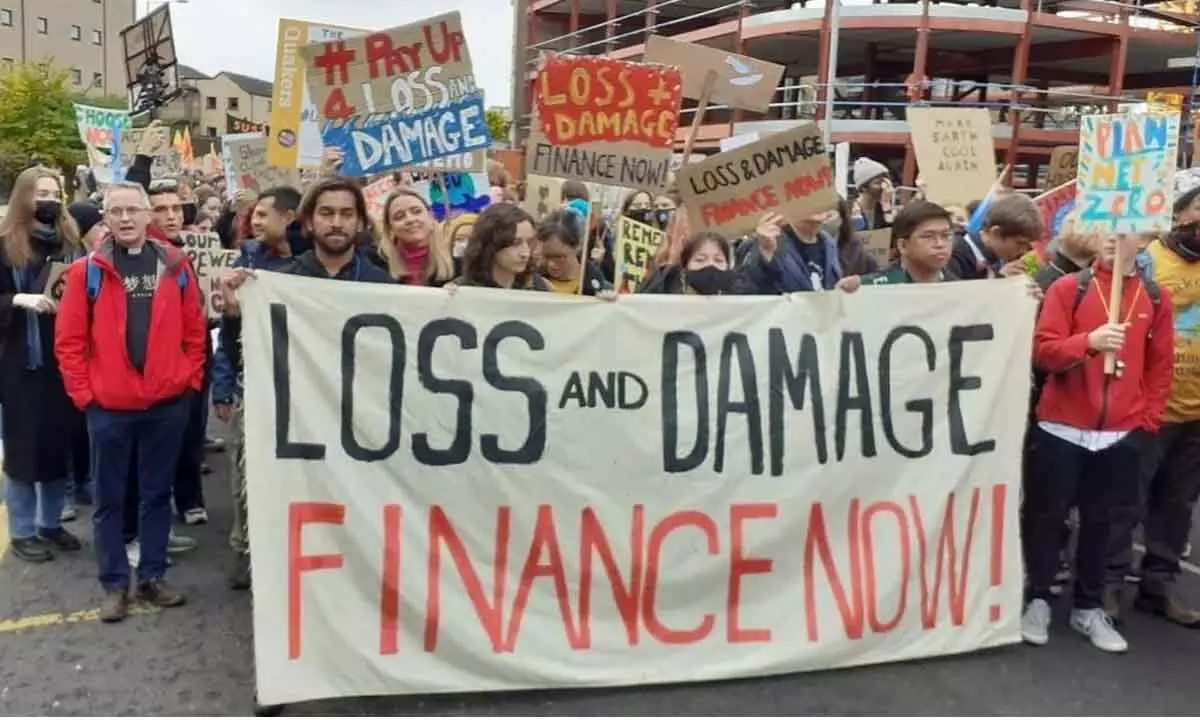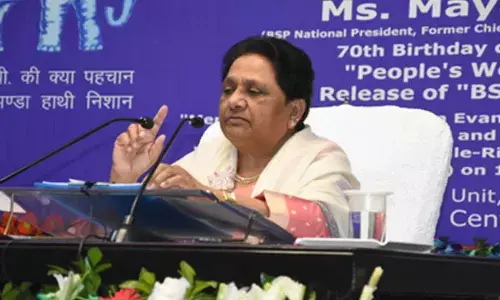COP27: No strong will to stem climate crisis

The establishment of a fund for loss and damage is clearly an important outcome of COP27, even with details yet to be fleshed out. But otherwise, the negotiations can't be seen as an unambiguously positive outcome for action on the climate crisis – especially with very little progress on mitigating emissions. And while the world dithers, the window of opportunity to respond effectively to the climate crisis continues to close
For 30 years, developing nations have fought to establish an international fund to pay for the "loss and damage" they suffer as a result of climate change. As the COP27 climate summit in Egypt wrapped up over the weekend, they finally succeeded. While it's a historic moment, the agreement of loss and damage financing left many details yet to be sorted out. What's more, many critics have lamented the overall outcome of COP27, saying it falls well short of a sufficient response to the climate crisis.
As Alok Sharma, president of COP26 in Glasgow, noted: "Friends, I said in Glasgow that the pulse of 1.5 degrees was weak. Unfortunately, it remains on life support. But annual conferences aren't the only way to pursue meaningful action on climate change. Mobilisation from activists, market forces and other sources of momentum mean hope isn't lost."
There were hopes COP27 would lead to new commitments on emissions reduction, renewed commitments for the transfer of resources to the developing world, strong signals for a transition away from fossil fuels, and the establishment of a loss and damage fund. By any estimation, the big breakthrough of COP27 was the agreement to establish a fund for loss and damage. This would involve wealthy nations compensating developing states for the effects of climate change, especially droughts, floods, cyclones and other disasters. Most analysts have been quick to point out there's still a lot yet to clarify in terms of donors, recipients or rules of accessing this fund. It's not clear where funds will actually come from, or whether countries such as China will contribute, for example. These and other details are yet to be agreed.
We should also acknowledge the potential gaps between promises and money on the table, given the failure of developed states to deliver on US$100 billion per year of climate finance for developing states by 2020. This was committed to in Copenghagen in 2009. But it was a significant fight to get the issue of loss and damage on the agenda in Egypt at all. So the agreement to establish this fund is clearly a monumental outcome for developing countries most vulnerable to the effects of climate change – and least responsible for it. It was also a win for the Egyptian hosts, who were keen to flag their sensitivity to issues confronting the developing world. The fund comes 30 years after the measure was first suggested by Vanuatu back in 1991.
Not-so-good news
The loss and damage fund will almost certainly be remembered as the marquee outcome of COP27, but other developments were less promising. Among these were various fights to retain commitments made in Paris in 2015 and Glasgow last year. In Paris, nations agreed to limit global warming to well below 2 degree Celsius, and preferably to 1.5 degree Celsius this century, compared to pre-industrial levels. So far, the planet has warmed by 1.09 degree Celsius, and emissions are at record levels.
Temperature trajectories make it increasingly challenging for the world to limit temperature rises to 1.5 degree Celsius. And the fact that keeping this commitment in Egypt was a hard-won fight casts some doubt on the global commitment to mitigation. China in particular had questioned whether the 1.5 degree Celsius target was worth retaining, and this became a key contest in the talks. New Zealand Climate Change Minister James Shaw said a group of countries were undermining decisions made in previous conferences.
Likewise, hoped-for rules to stop greenwashing and new restrictions on carbon markets weren't forthcoming. Both this outcome, and the failure to develop new commitments to phase out fossil fuels, arguably reflect the power of fossil fuel interests and lobbyists. COP26 President Alok Sharma captured the frustration of countries in the high-ambition coalition, saying: "We joined with many parties to propose a number of measures that would have contributed to [raising ambition]. Emissions peaking before 2025 as the science tells us is necessary. Not in this text. Clear follow through on the phase down of coal. Not in this text. Clear commitments to phase out all fossil fuels. Not in this text."
And the energy text weakened in the final minutes. And as United Nations Secretary General Antonio Guterres lamented: "Our planet is still in the emergency room."
Beyond COP27? In the end, exhausted delegates signed off on an inadequate agreement, but largely avoided the backsliding that looked possible over fraught days of negotiations. The establishment of a fund for loss and damage is clearly an important outcome of COP27, even with details yet to be fleshed out. But otherwise, the negotiations can't be seen as an unambiguously positive outcome for action on the climate crisis – especially with very little progress on mitigating emissions. And while the world dithers, the window of opportunity to respond effectively to the climate crisis continues to close.
(The Conversation)















